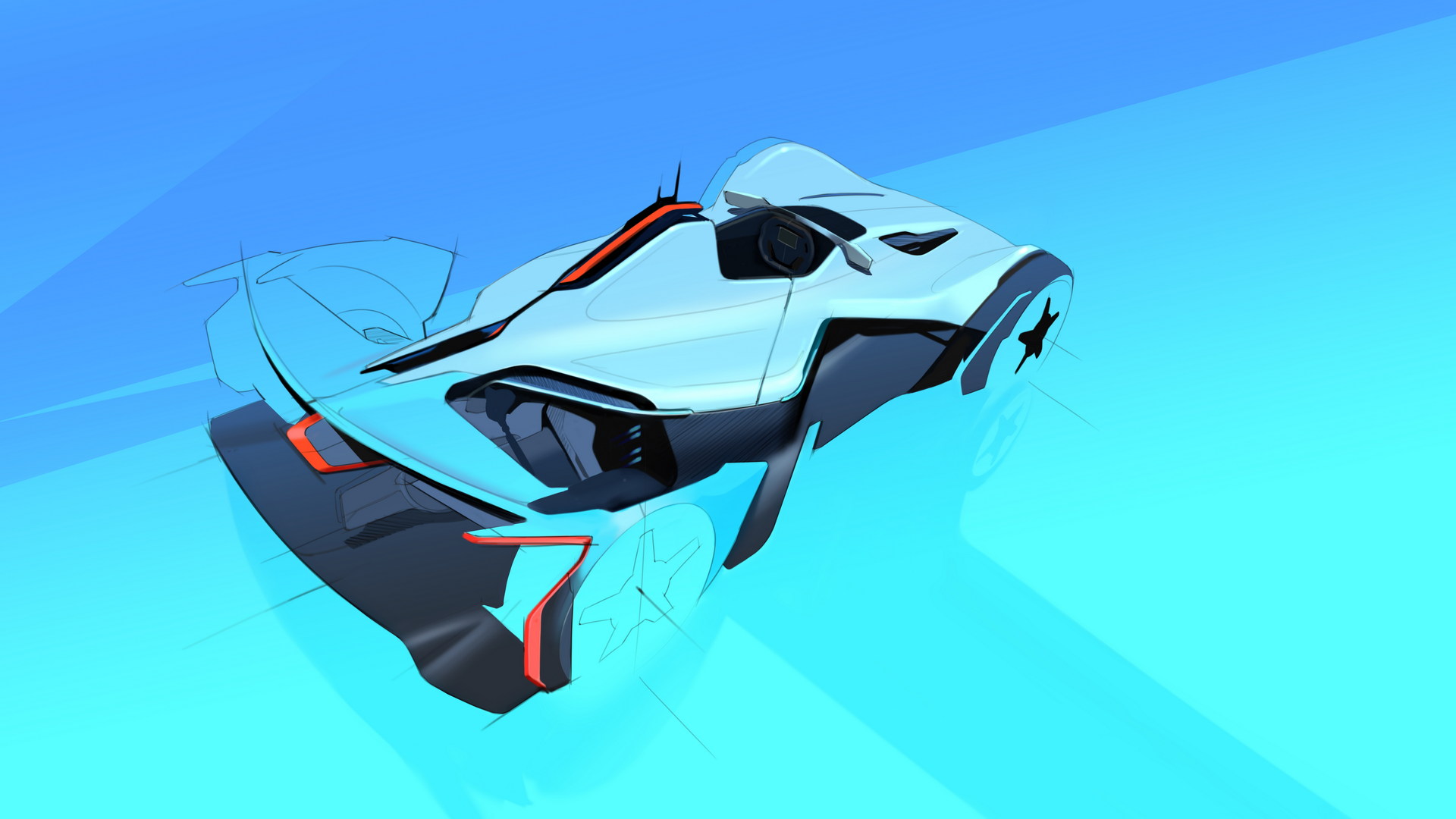
BAC e-Mono
The British Automotive Company, BAC in short, is making a name for itself thanks to the interesting project that sees its Mono, a small single-seater supercar already marketed in an endothermic version under the name of 'Mono R', reborn in a version powered by a hydrogen fuel cell system: it's called e-Mono, and judging by the company's first digital simulations at Silverstone, it would be even faster than its big sister.We don't expect that the BAC e-Mono is produced in many units, indeed, it would already be surprising to see one live: more than anything else, it is a concept and a feasibility study, a way to collect data on the future of motorsport with the advent of electric mobility.
Positioned under the seat, the car's battery pack has become a structural element of the whole project, in addition of course to the system that converts hydrogen into current and the hydrogen cylinder; the rest of the panels and chassis come directly from the Mono R, with minor changes made to the LED headlights, air intakes and some aerodynamic elements of the car.
After unveiling the project and idea to the world, now BAC is looking for investors who will allow you to give away e-Mono.
BAC e-Mono Concept With Hydrogen Fuel Cells Is Faster Than The ICE Mono R
A few months after BAC announced the FCEV variant of the Mono in collaboration with Viritech, we have the first official specifications of the single-seater that retains its lightweight nature and mind-blistering performance credentials in zero-emission guise. Surprisingly, the e-Mono is faster than the ICE-powered Mono R on digital simulation runs at Silverstone.
The BAC e-Mono is not a production vehicle but a concept feasibility study exploring the transition of the track-focused sportscar to the electric era. A battery-electric (BEV) Mono would be 50 percent heavier because of the batteries, thus the FCEV solution was chosen in order to retain the driver-focused characteristics of the single-seater.
See Also: All-New BAC Mono Breaks Cover With 332 PS, 0-60 In 2.7 Sec

BAC estimates that the e-Mono will weigh 149 kg (328 pounds) more than the ICE-powered Mono R, a figure that could be lowered to 100 kg (220 pounds) with a carbon case for the fuel cell and a lighter battery module from Viritech that is currently under development. As a result, the final weight of 655 kg (1,444 pounds) sounds amazing for a vehicle with a zero-emission powertrain.
The e-Mono is using the chassis of the regular Mono, with a clever fitment of the fuel cell, hydrogen tang, and battery pack. The latter is a structural component of the chassis, placed low under the seat. The fuel cell is placed above the battery, and the compressor is hidden in the air intake pod. Most body panels are carried over from the ICE-powered Mono, with a few design changes on the LED lighting units, air intakes and aero components distinguishing the zero-emission nature of the e-Mono as highlighted in a series of official sketches.

The combined power output from the FCEV powertrain is 371 hp (277 kW / 377 PS), with 264 hp (197 kW / 268 PS) of those coming from the battery and 107 hp (80 kW / 109 PS) from the fuel cell. At the same time, a set of electric motors mounted on the front wheels are offering all-wheel-drive capability, further improving performance. According to the official data, the BAC e-Mono accelerates from 0-100 km/h (0-62 mph) in 2.2 seconds and has a top speed of 266 km/h (165 mph). In digital simulation tests, the e-Mono achieved a lap time of 2.04.3 in Silverstone, which is exactly two seconds faster than the simulated run of the Mono R (2.06.3).
The WLTP range is estimated at 267 km/h (166 miles), with BAC claiming a more realistic number of 255 km/h (140 miles) in real-life conditions. As for track use, the e-Mono is able to complete 10 hot laps of Silverstone between refueling. The aforementioned range could be increased by a further 50 per cent by 2024 thanks to planned improvements in fuel cell efficiency that won’t affect the powertrain size and weight.
As noted by Neil Briggs, BAC Co-Founder and Director of Product Development, the company is now actively looking for suitable funding in order to bring the e-Mono closer to production, moving on to the proof of concept stage.
PHOTO GALLERYmore photos...